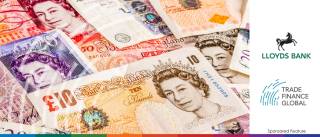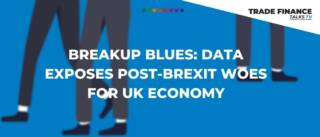While it comes with many business benefits, engaging in trade with nations around the world can be a complex process. As a result, it may be tempting to pay your invoices in GBP which, at face value, may seem like a simpler and more beneficial option – but this often isn’t the case.
After weeks of speculation and predictions of the euro’s value hitting parity with the US dollar, it finally happened this week, and the world noticed.
For the third day in succession, a test of the psychologically important parity level in Euro-Dollar is underway, but a significant layer of options barriers could yet mean the exchange rate closes above this level again.
As Iain Martin of the Times said, “To deny the downsides of Brexit on trade with the EU is to deny reality.”
The decision to secede from the world’s largest single market area was bound to have some short-term economic consequences, but the UK may be experiencing more than a short-term decline.
TFG’s Deepesh Patel caught up with FCI’s Chairman, Mr. Patrick de Villepin, and FCI Vice Chairman, Mrs. Daniela Bonzanini, on the critical role of Receivables finance industry in the recovery of global trade growth during this challenging period.
TFG’s Deepesh Patel heard from Caroline Stockmann, Chief Executive, Association of Corporate Treasurers on lessons learned from the
Covid-19 pandemic on building resilience in treasury.
Today we’re joined by UKTPO’s L. Alan Winters, talking about the power of good trade policy, how trade negotiations are done, and how to mitigate the negative effects of trade.
TFG heard from Elitsa Garnizova, Senior Project Manager and Researcher, London School of Economics on the current updates and what we can expect in this UK-EU-US economic relationship.
Smart Currency Business have collated predictions from major banks and highlighted key factors which may influence the pound, euro and dollar in their latest quarterly forecast.
Amsterdam, 4 June 2020: The growth of the factoring industry in 2019 continued its upward trend and the reported figures indicate an increase of over 5% to reach 2,917 billion… read more →
This article argues that the EU falls short of maintaining ‘mutual solidarity’ and that the stark economic differences between many EU nations leads to conflicting energy policies with Russia.
Here the story has been less dramatic. After the initial collapse in the pound to a 35-year low against the USD and 11-year low against EUR, we’ve seen a recovery to a level slightly above the average since the Brexit vote.
Unexpected and unpredictable, COVID-19 has already made a huge impact on global economies and markets, including the currency market.
There is, so far as I am aware, little or no precedent for what the UK is attempting to do: seeking to reduce unfettered access to its closest and most important market – which also happens to be one of the world’s two largest. In 2018, 46% of the UK’s exports went to the EU, and 54% of UK imports came from it. Almost all countries in the world try to make trade deals, not dismantle them.
 Australia
Australia Hong Kong
Hong Kong Japan
Japan Singapore
Singapore United Arab Emirates
United Arab Emirates United States
United States France
France Germany
Germany Ireland
Ireland Netherlands
Netherlands United Kingdom
United Kingdom















